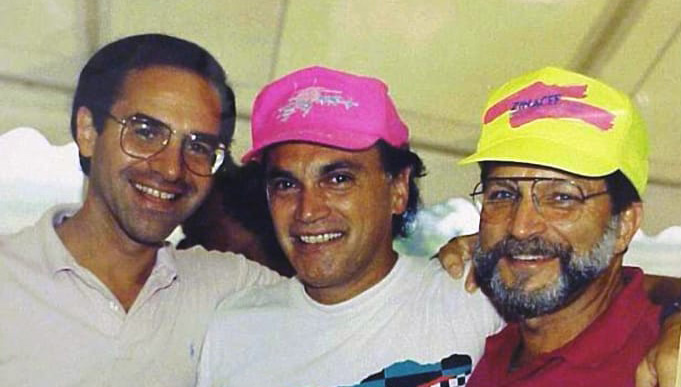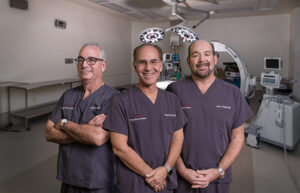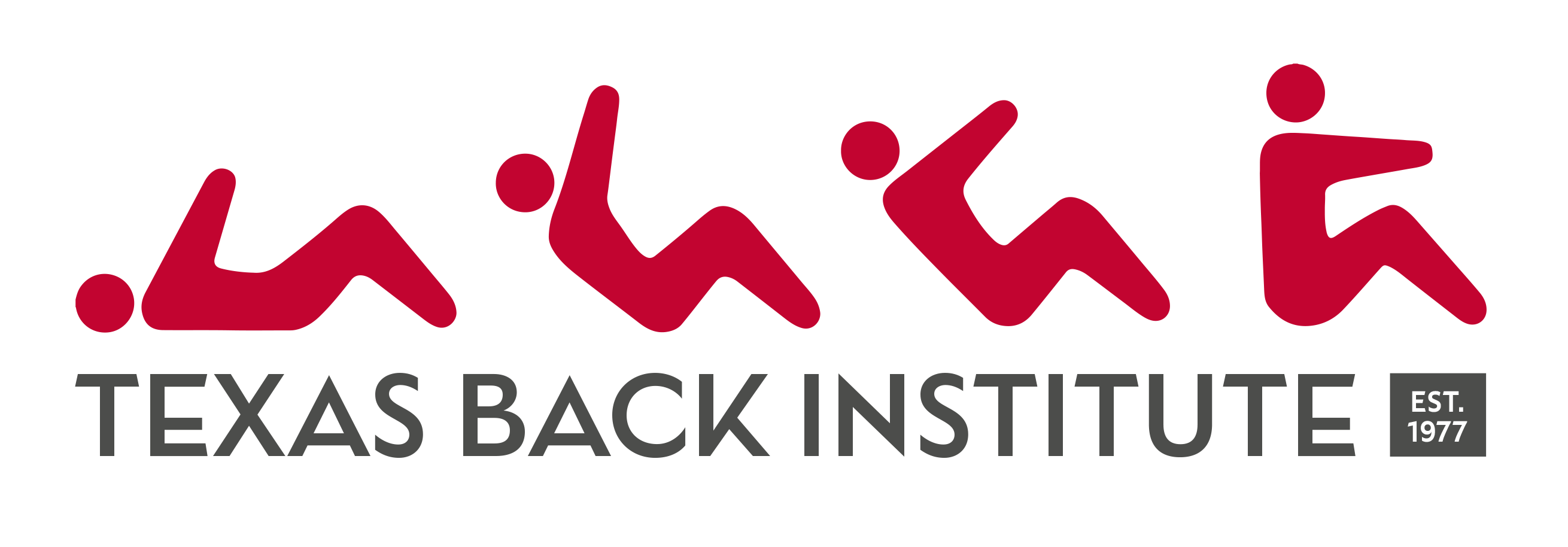Our History

REVOLUTIONIZING SPINE CARE FOR MORE THAN 45 YEARS
History of Texas Back Institute
The story of Texas Back Institute begins more than 45 years ago with two Air Force general medical officers who identified a problem in how back pain was being treated. Half a century later the institution they founded provides a myriad of innovative pain-relieving solutions for people all over the world.
Texas Back Institute today continues to focus on delivering the best possible outcomes for their patients through evidence-based research, technology, and the highest standard of care.

In The Beginning
In 1971, Dr. Stephen Hochschuler and Dr. Ralph Rashbaum met while stationed in Wichita Falls, Texas, as general medical officers in the United States Air Force.
During this time, both men saw a number of their patients suffering from various types of back pain, all being diagnosed and treated as if they had the same condition.
The doctors knew there were specific causes for each type, so they began targeting symptoms to establish more specific diagnoses. This experience led them to pursue orthopedic residencies upon completion of their military service.
After graduation, Dr. Hochschuler created the spine program at the VA hospital at the University of Texas Southwestern Medical School, and Dr. Rashbaum completed two fellowships – one with Dr. Henry Bohlman and the other as the first spine surgery fellow with Dr. Richard Rothman.
Both doctors stayed in touch, and when the time was right, Dr. Hochschuler reached out to Dr. Rashbaum and asked him to come back to Texas and establish a spine institute.
In 1977, they began building a multispecialty spinal clinic that focused on prevention, conservative care, surgery, rehabilitation, research, and development. Shortly afterward, Drs. Hochschuler and Rashbaum founded Texas Back Institute with the goal of integrating the narrow niche of spine specialty with ergonomic analysis, fellowship training, research, and product development.
Texas Back Institute began to grow and evolve over time. All the knowledge they acquired from performing their own diagnostic evaluations, therapeutic procedures, and use of instrumentation were folded into their ongoing protocols for conservative care, physical therapy, and surgery.
Texas Back Institute Research Foundation
In 1982, Dr. Richard Guyer joined Drs. Hochschuler and Rashbaum as the third founding partner.
During the process of building and refining the Texas Back Institute, the doctors wanted to create an academic component to their private practice, so they established a nonprofit research foundation in 1985, led by Dr. Barton Sachs.
One year later, Dr. Donna Ohnmeiss joined the Foundation to fulfill its mission of incorporating research, education, and development.
The primary focus of the Texas Back Institute Research Foundation has been the relationship between diagnostic evaluations and treatment outcomes. Numerous clinical studies have been conducted involving discography, MRIs, minimally invasive procedures, and total disc replacement.
Dozens of peer-reviewed medical articles have been published by TBI surgeons as a result of the Foundation’s studies. The program has even been involved with the publication of spine-related medical textbooks and monographs, including Rehabilitation of the Spine, The Spine in Sports, Lumbar Disc Disease, Cervical Disc Disease, and Spinal Arthroplasty: A New Era in Spine Care.
Texas Back Institute Spine Surgery Fellowship Program
In 1986, under the leadership of Dr. Richard Guyer, the Texas Back Institute Spine Surgery Fellowship Program was born. Dr. Guyer, alongside Dr. Jack Zigler, continues to lead the Fellowship Program.
Together they have trained more than 120 Fellows throughout the country, and surgeon visitors come from all over the world to observe the latest in new technologies being developed.
A key component of the Fellowship Program has been creating and implementing patient education programs and authoring numerous books for the public, including Back in Shape and Treat Your Back Without Surgery. The doctors are also actively involved with the development of editorial content for SpineUniverse.com and Spine-Health.com.
Moving Forward
 With its unparalleled commitment to the world of the spine, Texas Back Institute became the first institution in the United States to prescribe outpatient myelography, led the first FDA study of the artificial disc, and later performed the first artificial disc replacement in the United States.
With its unparalleled commitment to the world of the spine, Texas Back Institute became the first institution in the United States to prescribe outpatient myelography, led the first FDA study of the artificial disc, and later performed the first artificial disc replacement in the United States.
Texas Back Institute was also the second center in the country to develop a back school and perform multiplanar reconstruction of CT scans. The founders played an instrumental role in the development of the North American Spine Society and the Spine Arthroplasty Society.
Recognizing the importance of these organizations, the partners have also participated in leadership roles in the American Spinal Injury Association, Scoliosis Research Society, and the International Association for the Study of Pain, to name a few. Drs. Hochschuler and Rashbaum founded Texas Back Institute.
Throughout its history, the goal to perform as a center of excellence integrating the best of science and education with the best business practices has served Texas Back Institute well and continues to be the foundation of Texas Back Institute’s success. Now, 35 years later, Texas Back Institute is one of the largest freestanding multidisciplinary academic spine centers in the world.
Utilizing the latest technological advancements and medical breakthroughs, leading and participating in numerous FDA trials, developing surgeons through its Fellowship Programs and employing an expert medical team and compassionate support staff, Texas Back Institute remains (and will remain) dedicated to helping patients get back to life.
